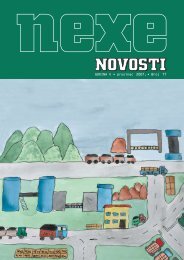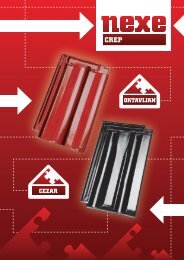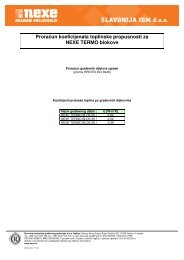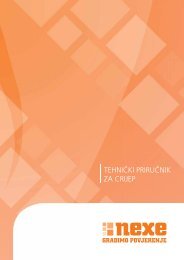Create successful ePaper yourself
Turn your PDF publications into a flip-book with our unique Google optimized e-Paper software.
4 Non-Cooperative Core Lower Bounds and AspirationUpper BoundsThe aspiration upper bounds are implied by the UTI doctrine. Contrary to the corelower bounds, these upper bounds do not depend on how the agents outside of acoalition behave. The aspiration welfare of a coalition S is the highest welfare itcould achieve in the absence of N\S. It is obtained by choosing a consumption plany(S) ∈ R S + maximizing ∑ i∈S b i(y i (S)) subject to the constraints∑y i (S) ≤ ∑ e i for all j ∈ S.i∈P j∩S i∈P jSince all benefit functions are strictly concave, the maximization problem has a uniquesolution, which we denote by y ∗ (S). Then the aspiration welfare of S isw(S) = ∑ i∈Sb i (y ∗ i (S)).A distribution z satisfies the aspiration upper bounds if ∑ i∈S z i ≤ w(S) for all coalitionsS. In the Lockean tradition, coalition S has a legitimate right to the welfare levelw(S) but not to more. Unfortunately the aspirations of two complementary coalitionsS and N\S are incompatible: w(S) + w(N\S) > v(N). It is even the case that forany partition P of N such that S ∈ P we have ∑ T ∈Pw(T ) > v(N), i.e. the aspirationof S is never compatible with the aspiration(s) of N\S independently of howN\S cooperates. Therefore, if ∑ i∈S z i > w(S), then ∑ i∈N\S z i < ∑ T ∈P:T ≠Sw(T ).This means that S benefits from the existence of N\S while N\S suffers from theexistence of S. If none of the agents bears any responsibility for the existence of theothers, no coalition is ought to enjoy more than its aspiration upper bound.Remark 3 Both the ATS and the UTI doctrines are also inspired by Moulin’s (1990)group externalities depending on how we define property rights over water. In theabsence of the other agents and the water entering the river at their locations, anyagent i enjoys v(i). Since ∑ i∈Nv(i) ≤ v(N), then our problem has positive group16

















